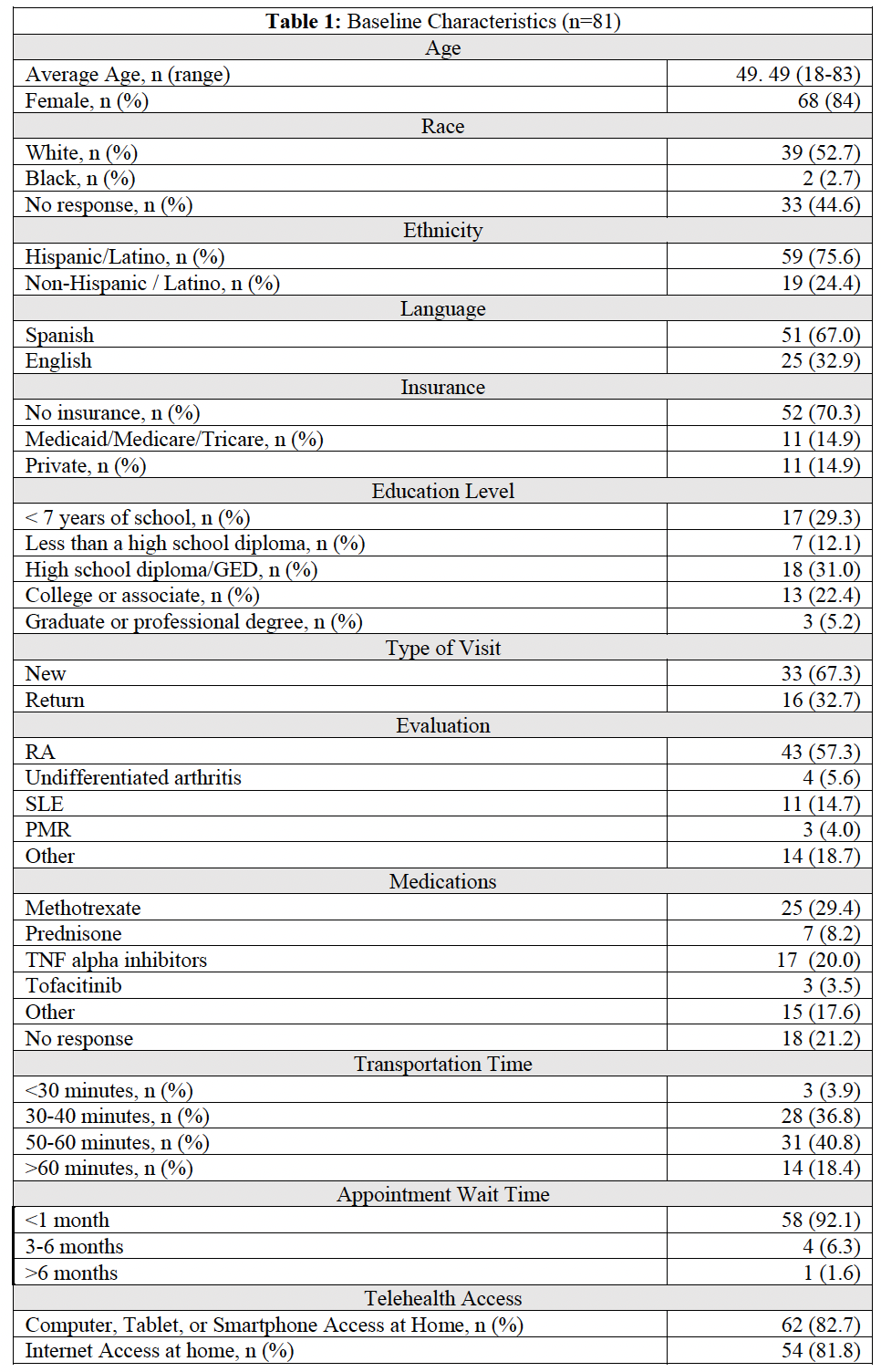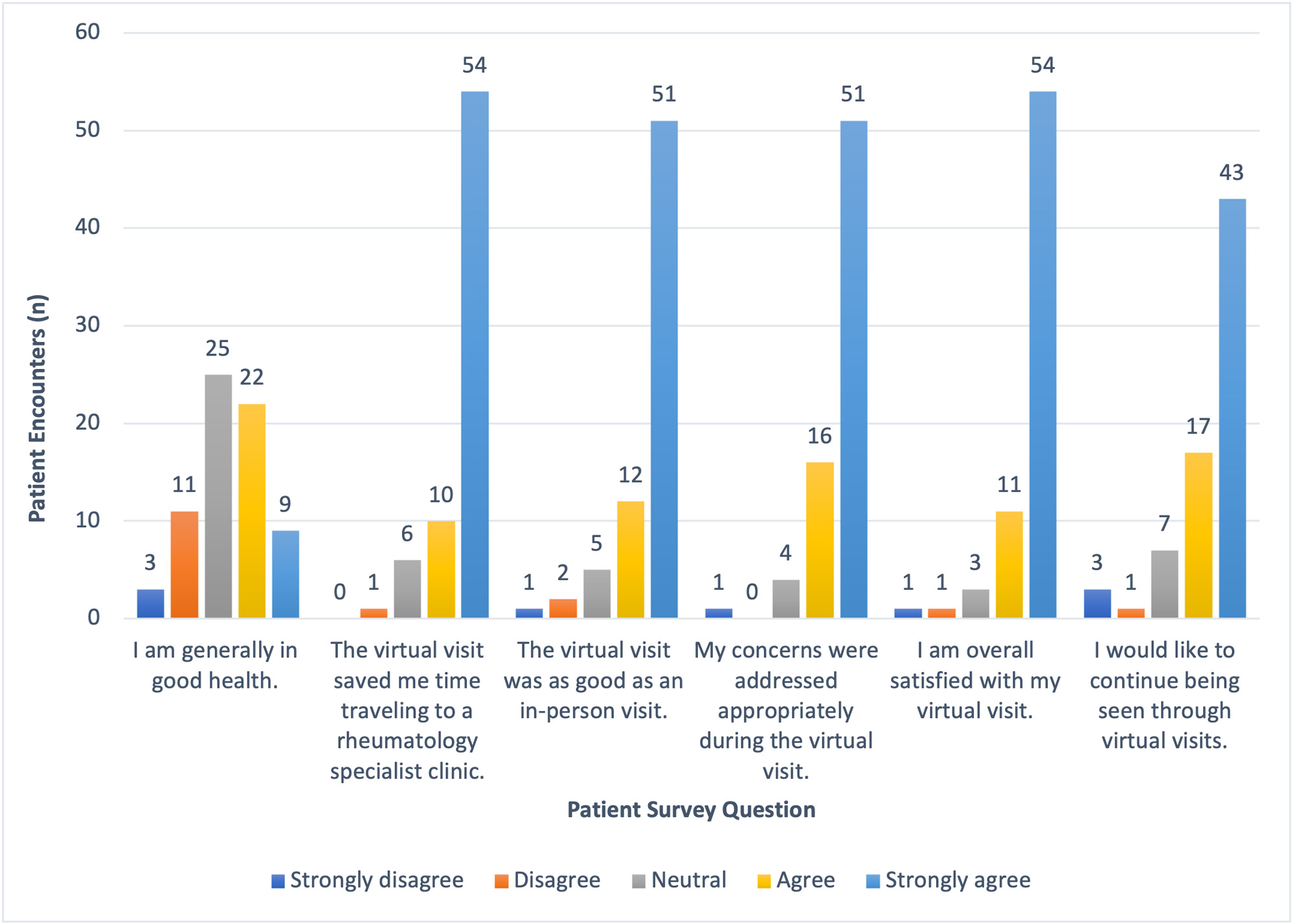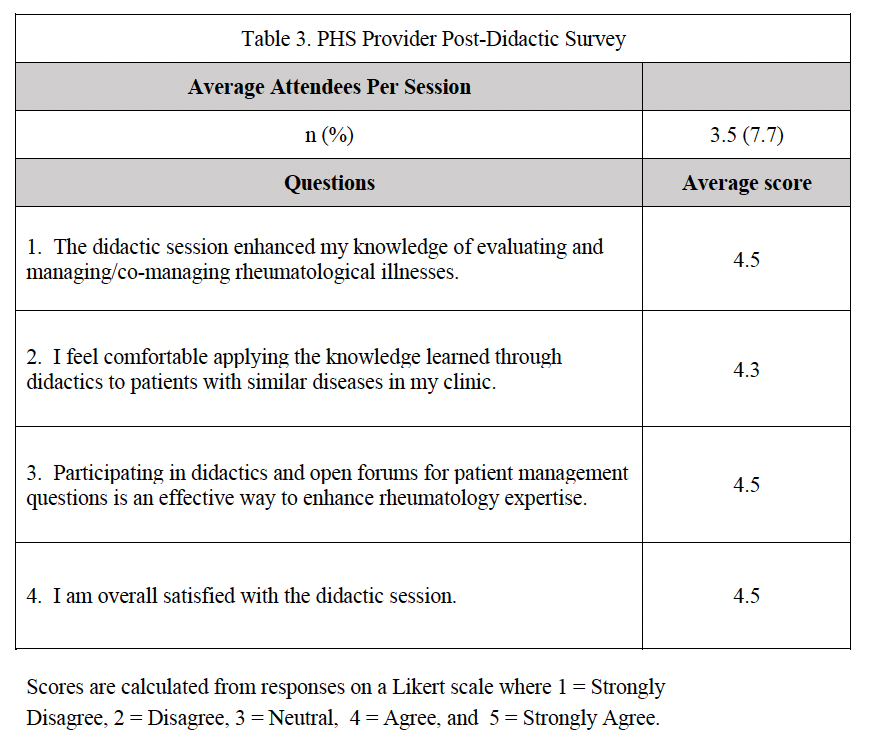Session Information
Session Type: Poster Session B
Session Time: 9:00AM-11:00AM
Background/Purpose: Access to healthcare is challenging for racial and ethnic minorities, especially in medically underserved rural areas.1 This issue is particularly prevalent in North Carolina where 40% live in rural counties.2 To address this disparity, a pilot project supported by the Arthritis Foundation was initiated in January 2022, to enhance access to rheumatology specialty care. The project focused on shared telehealth visits between the University of North Carolina (UNC) Rheumatology Clinic and Piedmont Health Services (PHS), a federally qualified health center catering to rural NC patients. This extension of the pilot project evaluates the follow-up data from the past year with expansion to 81 patient encounters and assess limitations of the pilot.
Methods: Patients eligible for the rheumatology telehealth clinic were established patients with a history of rheumatic disease who had been lost to follow up or new patients requiring rheumatology evaluation who faced transportation and/or financial barriers. Monthly clinic sessions were conducted between the on-site PHS provider and the off-site UNC rheumatologist. The PHS provider facilitated the physical examination and relayed objective data while receiving rheumatology guidance over video. The rheumatologist assisted real time with workup and management. Non-identifying patient demographics were also collected. Monthly virtual didactic sessions on core topics in rheumatology were conducted by UNC rheumatologists. PHS provider satisfaction after didactic sessions was evaluated using 5-point Likert surveys.
Results: Between January 2022 and March 2023, a total of 81 encounters (new and return) were completed. Majority of patients identified as female (84%), Hispanic (75.6%), and Spanish-speaking (67.1%). Most patients reported being uninsured (70.3%). The most encountered rheumatic conditions were RA (57.3%), SLE (14.6%), undifferentiated arthritis (5.6%), and other (21.7%). Wait time from referral to visit completion was short, with 92.1% of patients reporting less than a 1-month wait. In contrast, average wait times for new patient visits at UNC was 6 months or greater. Patient satisfaction scores were high and there was a strong interest in continuing to use this telehealth clinic for future visits. Didactic sessions received high satisfaction scores from providers, but attendance was low with an average of 4-5 community providers present per session out of the 45 invited.
Conclusion: This project supported by the Arthritis Foundation employs a unique model connecting an on-site primary care provider with a virtual rheumatologist to address barriers related to transportation, medical costs, internet access and time. Patients reported high satisfaction with this model. This project entailed educational sessions to empower the local community workforce to manage rheumatic conditions. While didactic sessions were rated favorably, provider attendance was low. Future directions include a needs assessment to evaluate barriers faced by community providers to expand rheumatology knowledge and ability to manage basic rheumatic conditions; and therefore, enhance the local community workforce serving the rural medically underserved.
To cite this abstract in AMA style:
Jain P, Tiller E, Doughton J, Ishizawar R, Rivadeneira A. Optimizing Rural Rheumatology Access: Collaborative Tele-Health Clinic Between University of North Carolina and Piedmont Health 1 Year Extension and Opportunities for Improvement [abstract]. Arthritis Rheumatol. 2023; 75 (suppl 9). https://acrabstracts.org/abstract/optimizing-rural-rheumatology-access-collaborative-tele-health-clinic-between-university-of-north-carolina-and-piedmont-health-1-year-extension-and-opportunities-for-improvement/. Accessed .« Back to ACR Convergence 2023
ACR Meeting Abstracts - https://acrabstracts.org/abstract/optimizing-rural-rheumatology-access-collaborative-tele-health-clinic-between-university-of-north-carolina-and-piedmont-health-1-year-extension-and-opportunities-for-improvement/



